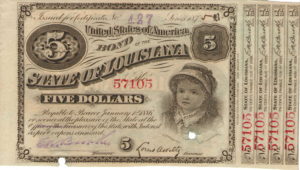
Timothy Rodgers of Overland Park, Kansas, a registered stockbroker with Wells Fargo Advisors, LLC, was fined $10,000 and suspended for five months from associating with any Financial Industry Regulatory Authority (FINRA) member in any capacity after consenting to findings that he had engaged in unauthorized private securities transactions and made false statements to his firm concerning them. Letter of Acceptance, Waiver and Consent, No. 2014042274801 (Nov. 24, 2015). On July 14, 2014, Wells Fargo Advisors terminated Rodgers after concerns arose concerning his outside business activities.
According to the AWC, from May 2010 through August 2012, Rodgers engaged in private securities transactions that were not disclosed or approved by his firm. In May 2010, Rodgers had made an estimated $50,000 investment in a security related to a real estate development company, L.L. LLC. The AWC stated that Rodgers was a passive investor that had no role in the management, yet he failed to obtain approval from his firm to make the investment. The AWC reported that on March 24, 2011, Rodgers completed his firm’s annual compliance questionnaire, in which he failed to disclose the L.L. investment when prompted to disclose all investments Rodgers made in the prior twelve month period.
The AWC then stated that in 2012, Rodgers formed K2, LLC, with three individuals who were Rodgers’ customers at Wells Fargo Advisors. K2 was reportedly formed with the plan of pooling the investors’ funds through K2 in a security called HS, Inc. Rodgers pledged $50,000 of his money and was a passive investor. However, Wells Fargo Advisors had a policy which prohibited registered representative such as Rodgers from pooling funds with firm customers. Rodgers apparently requested from his firm that he be able to individually invest in HS, but he failed to disclose that he would first be making the investment in K2 and then investing in joint fashion with the other firm individuals in HS, Inc.
According to the AWC, K2 purchased a convertible note for $200,000 from HS prior to the firm approving Rodgers’ request to individually invest. Rodgers falsely stated in his Firm’s 2012 questionnaire that he had not made any investments in the prior twelve month period when he had in fact made the investment in K2 and participated in the joint investment. The AWC stated that Rodgers also lied about not engaging in any joint business ventures with a firm client. FINRA found that Rodgers’ conduct was violative of NASD Rule 3040 and FINRA Rule 2010 in this regard.
Selling away, also known as private securities transactions or undisclosed outside business activities, occurs when a stockbroker engages or participates in the sale of securities to investors outside of the formal approval of the securities firm with whom they are associated.
As a general matter, stockbrokers are only permitted to engage in the solicitation or sale of investments and investment related products approved by their firm. However, quite frequently, stockbrokers solicit, participate, or directly engage in the sale of typically unregistered securities or investments without the approval and outside of the auspices of their firm. These investments may take on many forms, and may include the recommendation of an outside money manager, or a hedge fund, which may sometimes turn out to be a Ponzi scheme. Sometimes these outside investments may include off-shore securities, insurance trusts, stocks or ownership interests in small businesses, startup ventures, corporate debentures, mortgage notes, private placements, promissory notes, oil & gas interests, real estate partnerships, pre-IPO shares, and a variety of other investments.
Public disclosure records via FINRA’s BrokerCheck reveal that Rodgers has been subject to four disclosure incidents. On August 13, 2008, Rodgers settled a customer dispute for $25,000 after a client alleged that Rodgers misrepresented the liquidity of a security. On October 10, 2011, Rodgers settled a customer dispute for $7,244.00 after a client alleged that Rodgers failed to liquidate his account when instructed, causing the client to bear market losses.
Guiliano Law Group
Our practice is limited to the representation of investors. We accept representation on a contingent fee basis, meaning there is no cost to unless we make a recovery for you, and there is never any charge for a consultation or an evaluation of your claim. For more information contact us at (877) SEC-ATTY.








